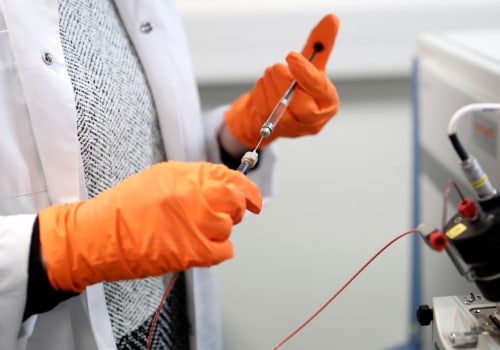Key trends in the pharmaceutical industry include artificial intelligence (AI), additive manufacturing, blockchain, and other Industry 4.0 technologies. As one of the most prominent trends in the pharmaceutical industry, mergers and acquisitions have shaped the pharmaceutical industry more significantly than other industries. This is because the pharmaceutical industry is high-risk; few products reach the market and even fewer recover the cost of R%26D. The focus of mergers and acquisitions will also change, from accumulating a large product portfolio to focusing on areas of strength and eliminating areas of weakness.
An example of this is the exchange of assets of GlaxoSmithKline (GSK) with Novartis, which strengthened GSK's position on vaccines and reinforced Novartis' prominence in cancer drugs. Trends in the pharmaceutical industry will play an important role in the careers of people who aspire to become leaders in healthcare. If you are interested in leading the challenge in the challenging world of healthcare, explore the online Master of Business Administration program at George Washington University to learn how the program can help you achieve your professional goals. Take the first step to a rewarding career today.
The integration of wearable technology enables pharmaceutical companies to do more than just manufacture, market and sell medicines. Technology gives patients a greater ability to manage their conditions and make critical decisions. Roche is another early adopter of wearable technology integration. The company combined its MySugr app with the Accu-Chek Guide glucose meter, allowing people with diabetes to experience a different and more responsive way of managing the condition.
We predict that coronavirus vaccines and therapies will encourage greater collaboration between organizations. Organizations will share research and development results to address the global pandemic as effectively and efficiently as possible. Joint ventures and alliances between organizations will create more value and opportunities for coronavirus response and preparedness. The Pfizer-BioNTech vaccine is the first effective launch we've seen, and as other COVID-19 vaccines begin to leak, there will be a number of challenges to face.
Organizations must be able to keep up with the supply of medicines to meet global demand. Cold storage of the drug should be maintained in the distribution. There is concern about the affordability and financial responsibility of some countries to provide the entire population with the right dose. Clinical Services International 50 Sloane Avenue London SW3 3DD United Kingdom.
Personalized medicine, also called precision medicine, is a method of diagnosing and adapting therapies to individual patients based on their expected response to treatment. If you're ready to improve the digitalization of your pharmaceutical manufacturing facilities, contact us for a free consultation with Tulip's pharmaceutical industry experts. This means that pharmaceutical companies will focus on global competencies with strategies adapted to keep local markets competitive. As Japan is one of the fastest-growing pharmaceutical markets in the world, organizations are focusing their attention on the country.
Pharmaceutical manufacturers are under constant pressure to accelerate innovation and increase the speed at which they bring successful drugs to market.








Leave Reply